
Naujamiestis: The Modern Heartbeat of Vilnius
Naujamiestis, or the 'New Town,' is a vibrant and dynamic district in Vilnius, Lithuania. This area seamlessly blends the historical charm of Vilnius with modern urban living. Known for its eclectic mix of architectural styles, Naujamiestis offers visitors a unique glimpse into both the past and present of the city. From grand 19th-century buildings to contemporary art spaces, every corner of this neighbourhood tells a story. Situated just south of the Old Town, Naujamiestis is easily accessible and perfect for those looking to explore beyond the traditional tourist routes. The neighbourhood is a hub for culture and creativity, with numerous galleries, theatres, and music venues. For those interested in Lithuanian art and history, the National Art Gallery and the Lithuanian Railway Museum are must-visit spots. Food enthusiasts will delight in the diverse culinary scene of Naujamiestis. The local restaurants and cafes serve a mix of traditional Lithuanian dishes and international cuisine, catering to all tastes. The neighbourhood is also known for its lively nightlife, with a variety of bars and clubs that come alive after dark. Whether you're a history buff, an art lover, or a foodie, Naujamiestis has something to offer everyone.
Local tips in Naujamiestis
- Visit the National Art Gallery for a comprehensive overview of Lithuanian art.
- Take a stroll along Gediminas Avenue for shopping and dining options.
- Check out the local markets for fresh produce and unique souvenirs.
- Explore the Lithuanian Railway Museum for a fascinating look into the country's transportation history.
- Enjoy the vibrant nightlife by visiting the various bars and clubs in the area.
Naujamiestis: The Modern Heartbeat of Vilnius
Naujamiestis, or the 'New Town,' is a vibrant and dynamic district in Vilnius, Lithuania. This area seamlessly blends the historical charm of Vilnius with modern urban living. Known for its eclectic mix of architectural styles, Naujamiestis offers visitors a unique glimpse into both the past and present of the city. From grand 19th-century buildings to contemporary art spaces, every corner of this neighbourhood tells a story. Situated just south of the Old Town, Naujamiestis is easily accessible and perfect for those looking to explore beyond the traditional tourist routes. The neighbourhood is a hub for culture and creativity, with numerous galleries, theatres, and music venues. For those interested in Lithuanian art and history, the National Art Gallery and the Lithuanian Railway Museum are must-visit spots. Food enthusiasts will delight in the diverse culinary scene of Naujamiestis. The local restaurants and cafes serve a mix of traditional Lithuanian dishes and international cuisine, catering to all tastes. The neighbourhood is also known for its lively nightlife, with a variety of bars and clubs that come alive after dark. Whether you're a history buff, an art lover, or a foodie, Naujamiestis has something to offer everyone.
Iconic landmarks you can’t miss
Gate of Dawn
Discover the Gate of Dawn in Vilnius, a historical pilgrimage site with stunning architecture and a revered icon of the Virgin Mary, steeped in spiritual significance.
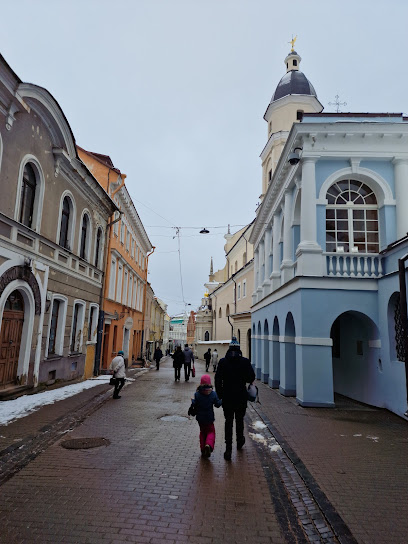
Palace of the Grand Dukes of Lithuania
Explore the rich heritage and majestic architecture of the Palace of the Grand Dukes of Lithuania, a historical gem in Vilnius.
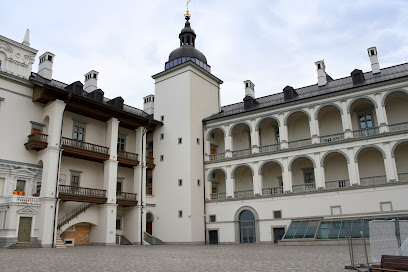
Vincas Kudirka Square
Explore the lush greenery and rich history of Vincas Kudirka Square, a serene park in the heart of Vilnius, perfect for relaxation and cultural immersion.
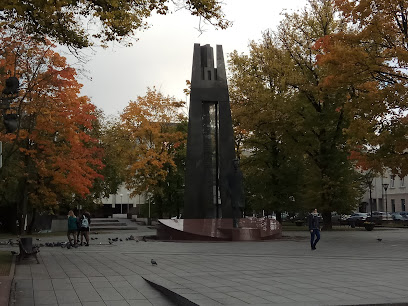
Bell Tower of Vilnius Cathedral
Discover the historical charm and breathtaking views of the Bell Tower of Vilnius Cathedral, a must-see landmark in Lithuania's vibrant capital.
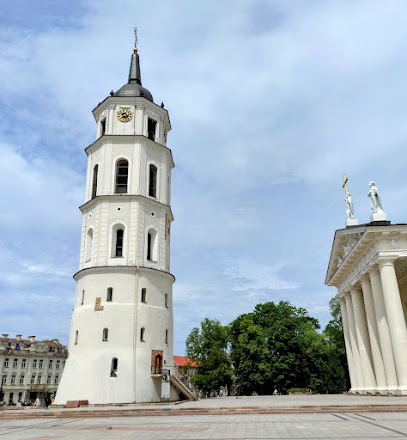
Monument to Grand Duke Gediminas
Explore the Monument to Grand Duke Gediminas in Vilnius, a stunning sculpture honoring Lithuania's founder amidst a vibrant cultural landscape.
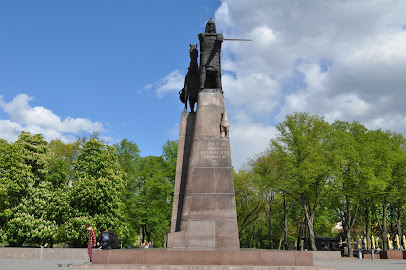
Independence Square
Discover Independence Square, the heart of Vilnius, where history, culture, and vibrant life converge in a stunning architectural setting.
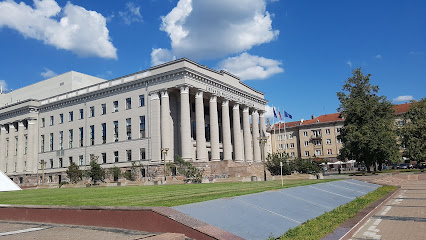
John Lennon Memorial
Discover the John Lennon Memorial in Vilnius, a powerful tribute to peace and creativity, nestled in the heart of Lithuania's vibrant capital.
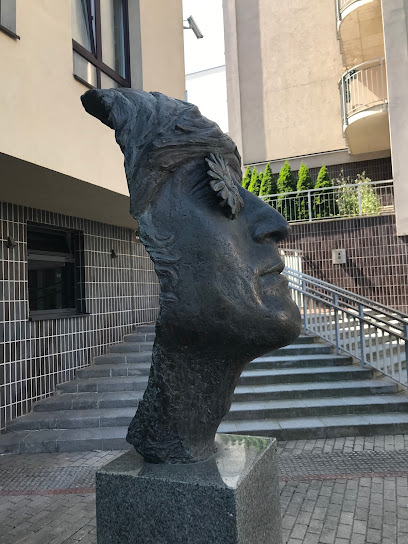
Monument with Relics of Historical Battles
Explore the Monument with Relics of Historical Battles in Vilnius, where rich history meets stunning artistry in a serene park setting.
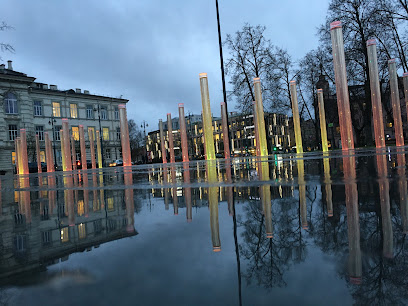
House tree - Street art
Explore the enchanting House Tree in Vilnius, a captivating street art masterpiece that merges creativity with nature, perfect for memorable photos.
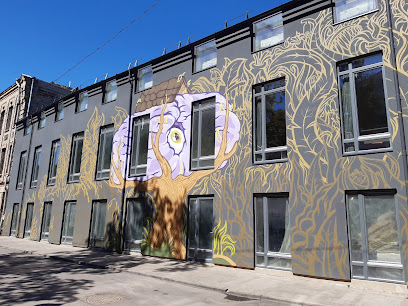
Former House of Scientist
Discover the historic elegance of the Former House of Scientist, a cultural gem in Vilnius steeped in intellectual legacy and architectural beauty.
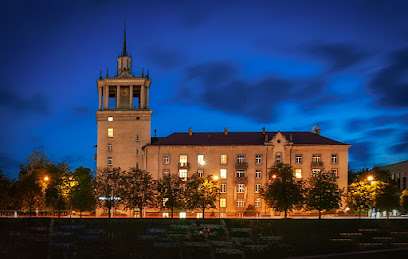
Unmissable attractions to see
Palace of the Grand Dukes of Lithuania
Explore the grandeur of Lithuania's royal heritage at the Palace of the Grand Dukes, a stunning museum in Vilnius showcasing rich history and culture.
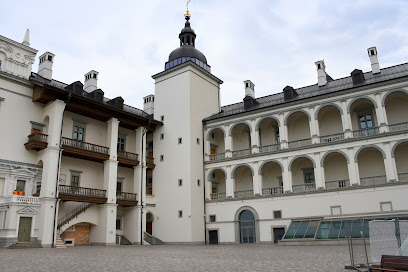
Cathedral Square
Explore Cathedral Square in Vilnius, where history meets stunning architecture in a vibrant cultural hub.
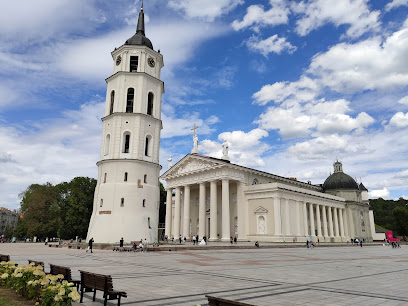
The New Arsenal of National Museum of Lithuania
Explore Lithuania's vibrant history at The New Arsenal of National Museum, a must-visit for culture enthusiasts in Vilnius.
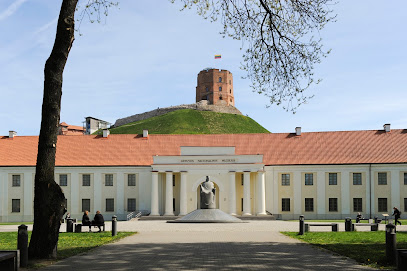
Apple Sculpture
Discover the vibrant Apple Sculpture in Vilnius, a unique artistic landmark that symbolizes creativity and innovation amidst lush greenery.
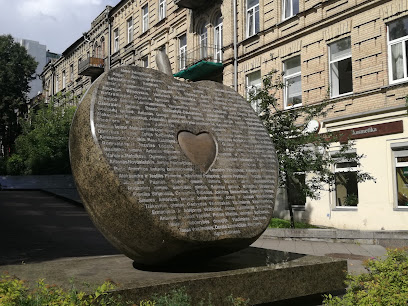
Vilnius In Love
Experience the vibrant spirit of Vilnius at Vilnius In Love, where art, culture, and history come together in a captivating atmosphere.
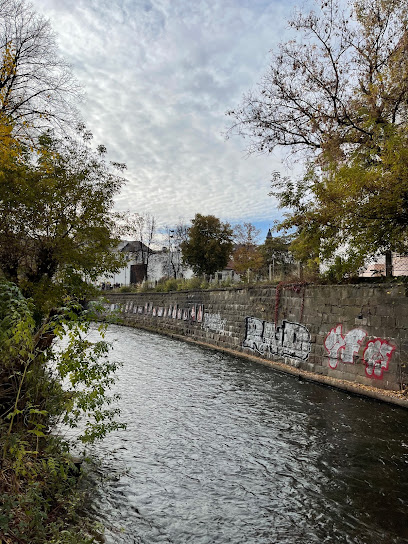
House tree - Street art
Explore the House Tree in Vilnius - A stunning street art masterpiece that beautifully merges nature and creativity in the heart of the city.
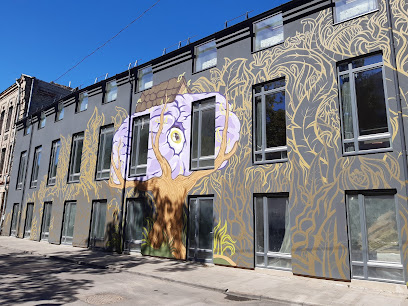
Think
Explore the vibrant art and culture at Think, an iconic tourist attraction in Vilnius that showcases Lithuania's creative spirit and rich heritage.

Essential places to dine
Senoji trobelė
Discover authentic Lithuanian flavors at Senoji Trobelė in Vilnius - where tradition meets taste in a charming atmosphere.
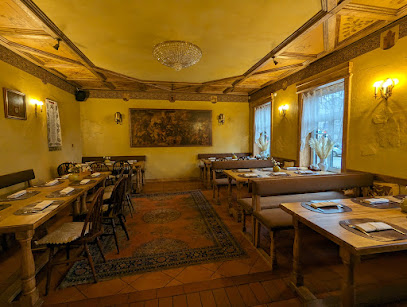
Žemaičių ąsotis
Discover authentic Lithuanian flavors at Žemaičių ąsotis in Vilnius - a culinary gem celebrating local traditions.
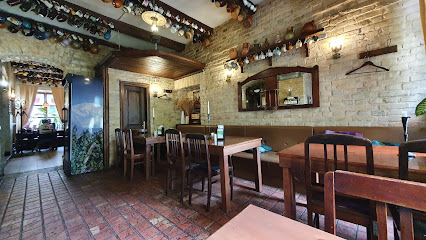
Kinza
Experience the essence of Asian fusion at Kinza in Vilnius – where Uzbek flavors meet culinary creativity.
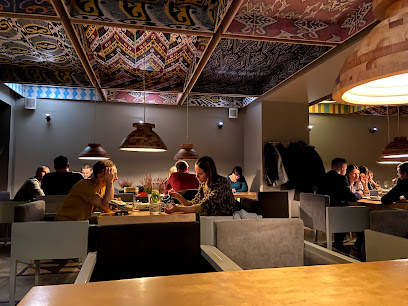
Selfish Bistro Vilnius
Discover the culinary delights of Selfish Bistro in Vilnius - where fresh seafood meets exquisite wines in an elegant setting.
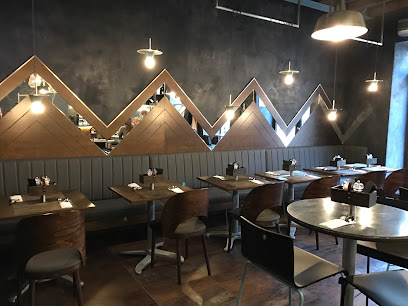
Houdini
Experience exquisite grilled cuisine at Houdini in Vilnius - where every meal is a celebration of flavor and warmth.
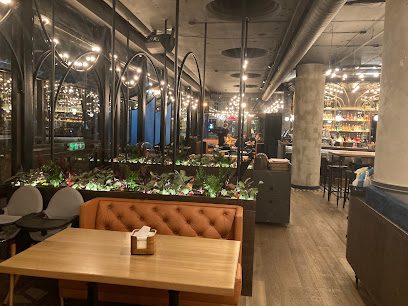
Osteria da Luca
Experience authentic Italian cuisine at Osteria da Luca in Vilnius, where delicious flavors meet warm hospitality.
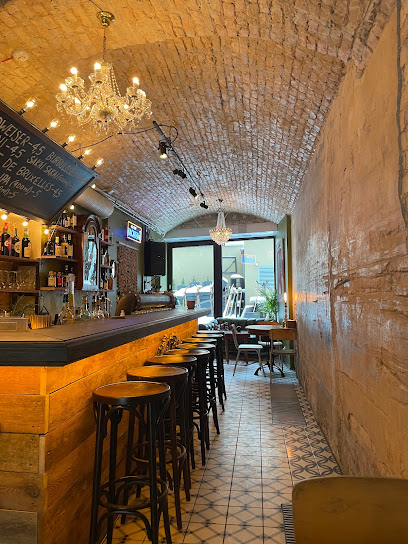
Donde
Experience authentic Tex Mex flavors at Donde in Vilnius—where every bite is a fiesta!
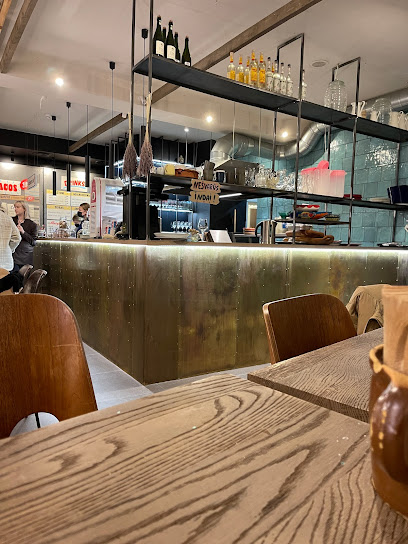
Dine
Experience exquisite modern European cuisine at Dine in Vilnius – where culinary artistry meets local flavors.
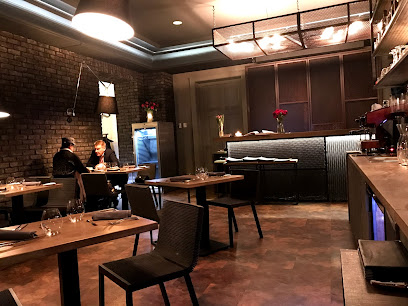
Trattoria da Flavio
Experience authentic Italian cuisine at Trattoria da Flavio in Vilnius - where tradition meets flavor in every bite.
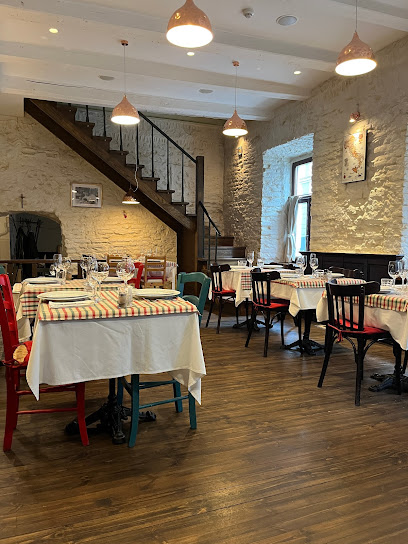
Chagin Restaurant
Discover Chagin Restaurant in Vilnius - where traditional Lithuanian cuisine meets modern dining in an inviting atmosphere.
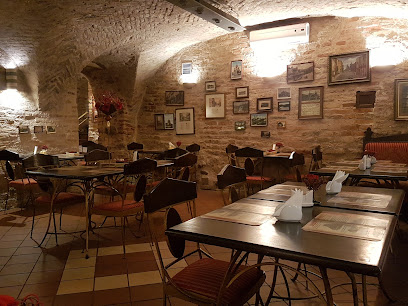
Markets, malls and hidden boutiques
Ragainė - Baltik shop
Explore Ragainė - Baltik Shop in Vilnius for handcrafted treasures and unique gifts that embody the spirit of Lithuanian culture and artistry.
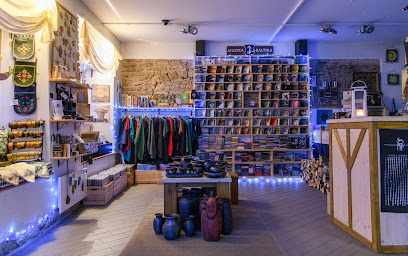
Frankenshop
Explore Frankenshop in Vilnius for unique fashion accessories and unforgettable tattoo experiences, blending style and self-expression seamlessly.
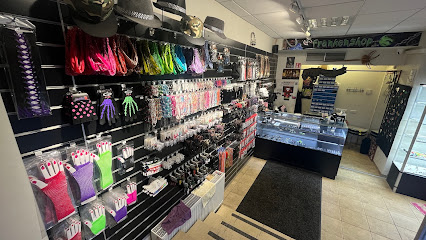
De'Žavu Vintage Boutique
Explore De'Žavu Vintage Boutique in Vilnius for unique, stylish vintage clothing and accessories that highlight timeless elegance and sustainability.
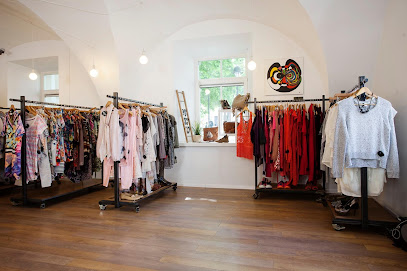
50ct Botique
Explore 50ct Boutique in Vilnius - your destination for unique second-hand treasures and sustainable shopping experiences.
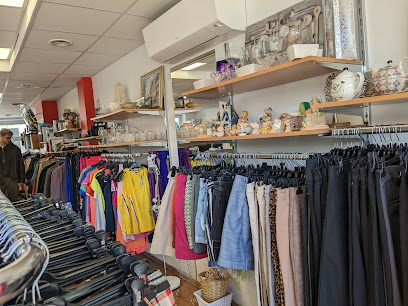
Vintage boutique
Explore the charm of high-end vintage fashion at Vilnius' unique Vintage Boutique - where every piece tells a story.
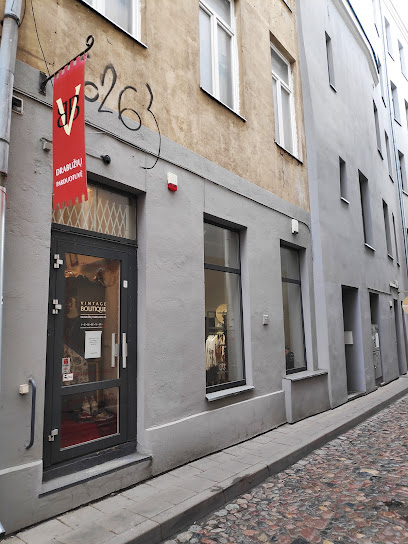
Retro Vintage
Explore Retro Vintage in Vilnius: a treasure trove of unique vintage clothing that tells a story and enhances your personal style.
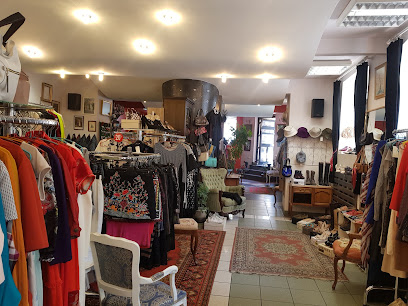
Mados paslaptys boutique
Explore the stylish offerings of Mados paslaptys Boutique in Vilnius, where local fashion meets contemporary design.
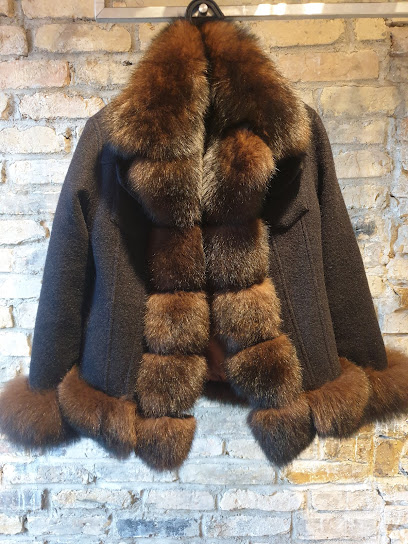
SALANIDA studio
Explore the unique blend of contemporary and traditional fashion at SALANIDA Studio in Vilnius, a must-visit destination for style enthusiasts.
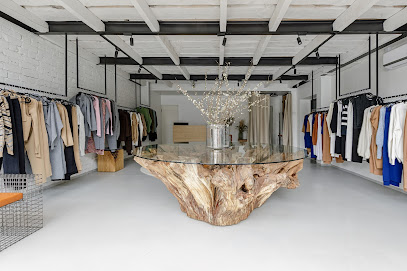
My attic
Explore My Attic in Vilnius for unique antiques and vintage home goods that capture the essence of history and craftsmanship.
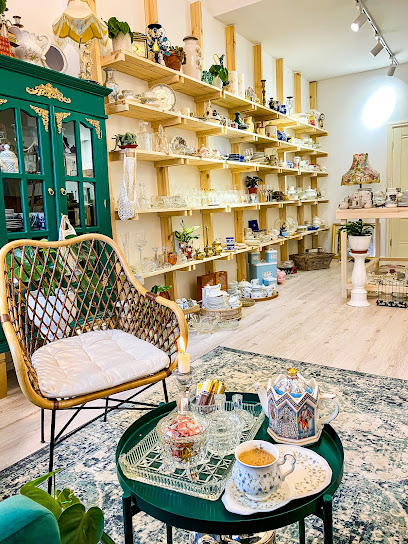
( BETWEEN ) studio
Explore unique fashion designs and immerse yourself in the creative atmosphere at (BETWEEN) Studio in Vilnius.
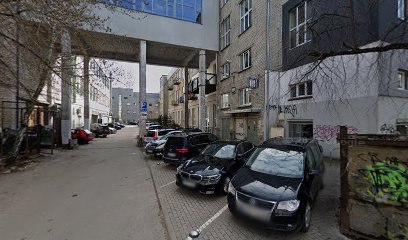
Essential bars & hidden hideouts
Uncle Sam's American pub
Discover the vibrant atmosphere and delectable American cuisine at Uncle Sam's American Pub in Vilnius, where every meal is a celebration.
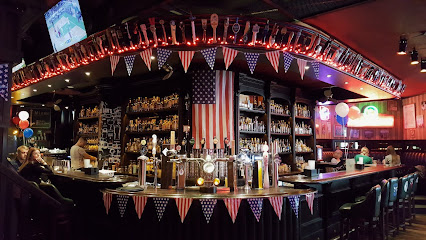
Piano Man Bar
Experience vibrant nightlife at Piano Man Bar in Vilnius, where exceptional drinks and lively music create the perfect evening atmosphere.
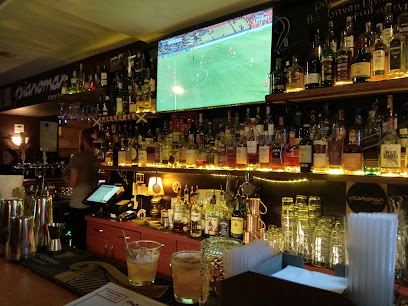
Alchemikas
Discover Alchemikas, Vilnius' premier cocktail bar, where creativity meets craftsmanship in every exquisite drink.
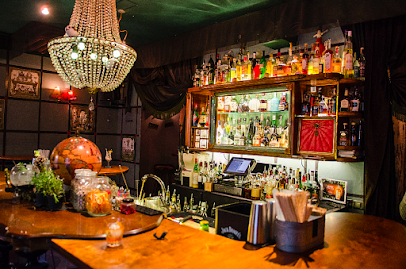
Viskio Baras “King & Mouse - Whisky Bar & Shop”
Discover a whisky lover's paradise at King & Mouse, Vilnius' premier whisky bar, offering an extensive selection of fine whiskies in a cozy atmosphere.
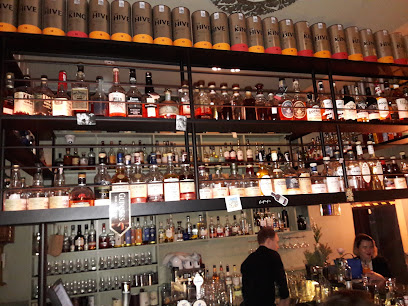
Cheers pub
Experience the vibrant nightlife of Vilnius at Cheers Pub, where great drinks and friendly vibes create unforgettable memories.
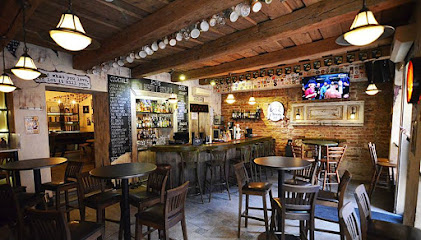
Bar DOG
Experience the cozy charm of Bar DOG in Vilnius, where great drinks and a friendly atmosphere await.
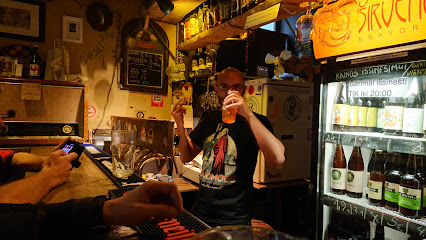
Amy Winehouse
Experience the essence of wine culture at Amy Winehouse Wine Bar in Vilnius, where every sip tells a story.
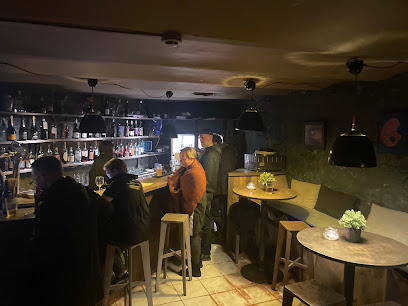
Sparta bar
Experience the vibrant nightlife of Vilnius at Sparta Bar, where delicious drinks and a lively atmosphere await you.
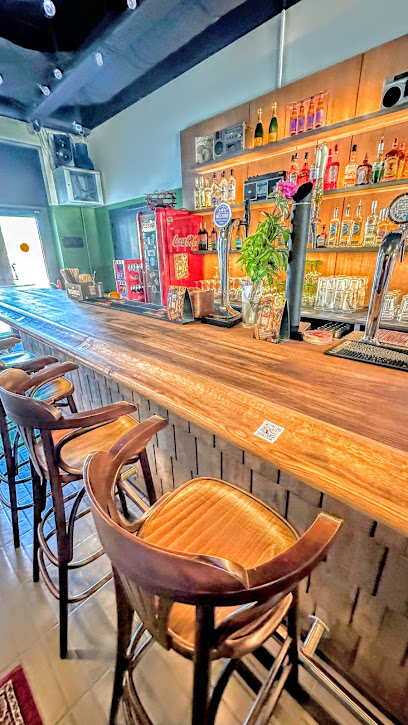
Puzzles - Drinks & Games
Experience the vibrant cocktail culture of Vilnius at Puzzles - Drinks & Games, where unique drinks meet an inviting atmosphere.
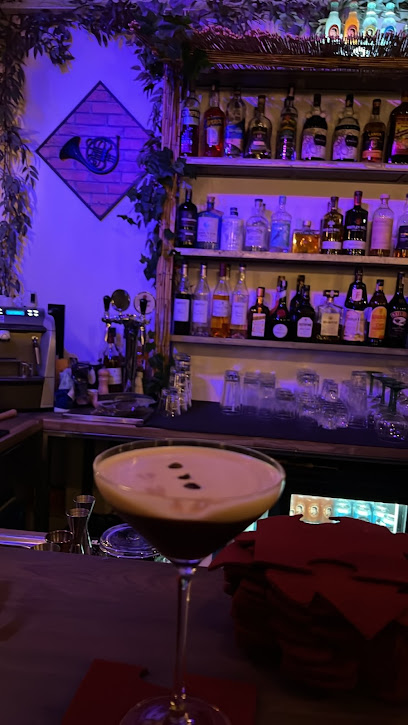
Beerkin Pub
Experience the best of Vilnius' nightlife at Beerkin Pub, where craft beer and a lively atmosphere come together for an unforgettable evening.
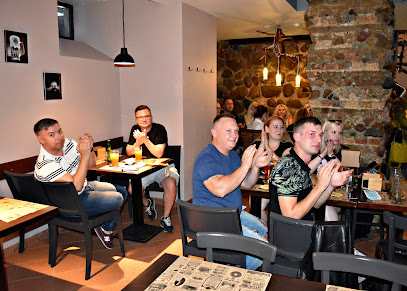
Local Phrases
-
- HelloLabas
[lah-bahs] - GoodbyeViso gero
[vee-so geh-ro] - YesTaip
[taip] - NoNe
[neh] - Please/You're welcomePrašau
[prah-shau] - Thank youAčiū
[ah-chyoo] - Excuse me/SorryAtsiprašau
[ah-tsee-prah-shau] - How are you?Kaip tu?
[kah-eep too] - Fine. And you?Gerai. O tu?
[geh-rai. oh too] - Do you speak English?Ar kalbate angliškai?
[ahr kahl-bah-teh ahng-leesh-kai] - I don't understandAš nesuprantu
[ahsh neh-soo-prahn-too]
- HelloLabas
-
- I'd like to see the menu, pleaseNorėčiau pamatyti meniu, prašau
[noh-reh-chiau pah-mah-tee-tee meh-nyoo, prah-shau] - I don't eat meatAš nevalgau mėsos
[ahsh neh-vahl-gow meh-sohs] - Cheers!Į sveikatą!
[ee svee-kah-tah] - I would like to pay, pleaseNorėčiau sumokėti, prašau
[noh-reh-chiau soo-moh-keh-tee, prah-shau]
- I'd like to see the menu, pleaseNorėčiau pamatyti meniu, prašau
-
- Help!Pagalba!
[pah-gahl-bah] - Go away!Išeik!
[ee-sheik] - Call the Police!Paskambinkite policijai!
[pah-skahm-been-kee-teh poh-lee-tsee-yai] - Call a doctor!Paskambinkite gydytojui!
[pah-skahm-been-kee-teh gih-dih-toh-yoo-ee] - I'm lostAš pasiklydau
[ahsh pah-see-kluh-dow] - I'm illAš sergu
[ahsh sehr-goo]
- Help!Pagalba!
-
- I'd like to buy...Norėčiau pirkti...
[noh-reh-chiau peerk-tee] - I'm just lookingAš tik žiūriu
[ahsh teek zhyoo-ree-oo] - How much is it?Kiek tai kainuoja?
[kyek tahy kai-noo-yah] - That's too expensiveTai per brangu
[tai pehr brahn-goo] - Can you lower the price?Ar galite sumažinti kainą?
[ahr gah-lee-teh soo-mah-zin-tee kai-nah]
- I'd like to buy...Norėčiau pirkti...
-
- What time is it?Kiek valandų?
[kyek vah-lahn-doo] - It's one o'clockVienas valandas
[vyeh-nahs vah-lahn-dahs] - Half past (10)Pusė dešimtai
[poo-seh deh-shim-tai] - MorningRytas
[ree-tahs] - AfternoonPopietė
[poh-pyeh-teh] - EveningVakaras
[vah-kah-rahs] - YesterdayVakar
[vah-kahr] - TodayŠiandien
[shyah-n-dyehn] - TomorrowRytoj
[ree-toy] - 1Vienas
[vyeh-nahs] - 2Du
[doo] - 3Trys
[treese] - 4Keturi
[keh-too-ree] - 5Penki
[pehn-kee] - 6Šeši
[sheh-shi] - 7Septyni
[sehp-tee-nee] - 8Aštuoni
[ahs-too-oh-nee] - 9Devyni
[deh-vee-nee] - 10Dešimt
[deh-shimt]
- What time is it?Kiek valandų?
-
- Where's a/the...?Kur yra...
[koor yra] - What's the address?Koks adresas?
[kohks ah-dreh-sahs] - Can you show me (on the map)?Ar galite man parodyti (žemėlapyje)?
[ahr gah-lee-teh mahn pah-roh-dy-tee zheh-meh-lah-pi-yeh] - When's the next (bus)?Kada yra kitas (autobusas)?
[kah-dah yra kee-tahs ow-toh-boo-sahs] - A ticket (to ....)Bilietas (į ....)
[bee-lyeh-tahs ee]
- Where's a/the...?Kur yra...
History of Naujamiestis
-
Naujamiestis, meaning 'New Town', emerged in the late 16th century as Vilnius expanded beyond its medieval walls. The area was initially intended to accommodate the growing population of the city, which was becoming a significant trade hub in the Grand Duchy of Lithuania. The layout of Naujamiestis was marked by wide streets and orderly urban planning, reflecting the Renaissance ideals of the period.
-
In the 19th century, Naujamiestis became a center of cultural and architectural activity. The construction of various neoclassical buildings and churches during this period mirrored the broader European trends. Notable structures include the Church of St. Michael and the former Jewish Hospital, which showcase the eclectic architectural styles that characterize the neighborhood.
-
The late 19th and early 20th centuries brought significant industrial development to Naujamiestis, with factories and workshops established along the banks of the Vilnia River. This industrial boom attracted workers and contributed to a diverse population, transforming the area into a bustling urban environment. The establishment of public transport, including tram lines, further integrated Naujamiestis into the urban fabric of Vilnius.
-
World War II had a profound impact on Naujamiestis, as it did on the entirety of Vilnius. The Jewish community, which had a vibrant presence in the neighborhood, faced tragic losses during the Holocaust. The war also led to significant destruction in the area, requiring extensive post-war reconstruction and reshaping the demographic and cultural landscape of Naujamiestis.
-
Under Soviet rule, Naujamiestis underwent significant changes, including the construction of large residential blocks and the introduction of Soviet-style architecture. Despite the imposition of a monotonous architectural style, the area retained its historical significance, and many older buildings were preserved. The Soviet era also saw the establishment of cultural institutions, including theaters and libraries, contributing to the neighborhood's cultural life.
-
In recent years, Naujamiestis has experienced a renaissance, characterized by the revitalization of its historical buildings and the emergence of a vibrant cultural scene. Art galleries, cafes, and creative spaces have sprung up, attracting both locals and tourists. The neighborhood has become a hub for modern art and cultural events, reflecting the dynamic spirit of contemporary Vilnius while honoring its rich history.
Naujamiestis Essentials
-
Naujamiestis is well-connected to the rest of Vilnius. From the city center, you can easily reach Naujamiestis by walking, as it is only a 15-20 minute stroll. Alternatively, public transport options include buses and trams. The Vilnius bus station and the main train station are also located nearby, providing easy access to regional and international destinations.
-
Naujamiestis is best explored on foot, as many attractions are within walking distance. Public transport includes buses and trams, which are frequent and reliable. For a more local experience, consider renting a bicycle; several bike rental shops are available throughout the neighbourhood. Many streets have designated bike lanes, making it a bike-friendly area.
-
Naujamiestis is generally safe for tourists. However, standard precautions should be taken, particularly in less crowded areas at night. Certain spots, especially near parks or isolated streets, may have higher crime rates, so it's best to avoid them after dark. Keep an eye on your belongings and be cautious of petty theft in crowded places.
-
In case of an emergency, dial 112 for police, ambulance, or fire services. The nearest hospital is the Vilnius University Hospital Santaros Klinikos. For minor health issues, there are several pharmacies in the area where you can purchase over-the-counter medications. It is advisable to have travel insurance for any medical emergencies.
-
Fashion: Do dress comfortably but modestly, especially in religious sites. Don’t wear overly casual clothing like beachwear in public places. Religion: Do respect local customs; when visiting churches, cover your shoulders and knees. Public Transport: Do be courteous and give up your seat to those in need. Don’t eat or drink on public transport. Greetings: Do greet with a handshake; a smile goes a long way. Eating & Drinking: Do try local dishes and drinks; don’t waste food, as it's considered disrespectful.
-
To experience Naujamiestis like a local, visit the local cafés and bakeries for traditional Lithuanian pastries. Explore the street art scene, particularly along the walls of the Vilnius Arts Factory. Don’t overlook the nearby Užupis district, known for its bohemian vibe and artist community. Engage with locals at markets and festivals to gain insight into the culture and lifestyle.
Trending Landmarks in Naujamiestis
Nearby Cities to Naujamiestis
-
Things To Do in Jonava
-
Things To Do in Kaunas
-
Things To Do in Utena
-
Things To Do in Marijampolė
-
Things To Do in Panevėžys
-
Things To Do in Daugavpils
-
Things To Do in Suwalki
-
Things To Do in Šiauliai
-
Things To Do in Bialystok
-
Things To Do in Riga
-
Things To Do in Jurmala
-
Things To Do in Sigulda
-
Things To Do in Klaipėda
-
Things To Do in Cesis
-
Things To Do in Olsztyn









